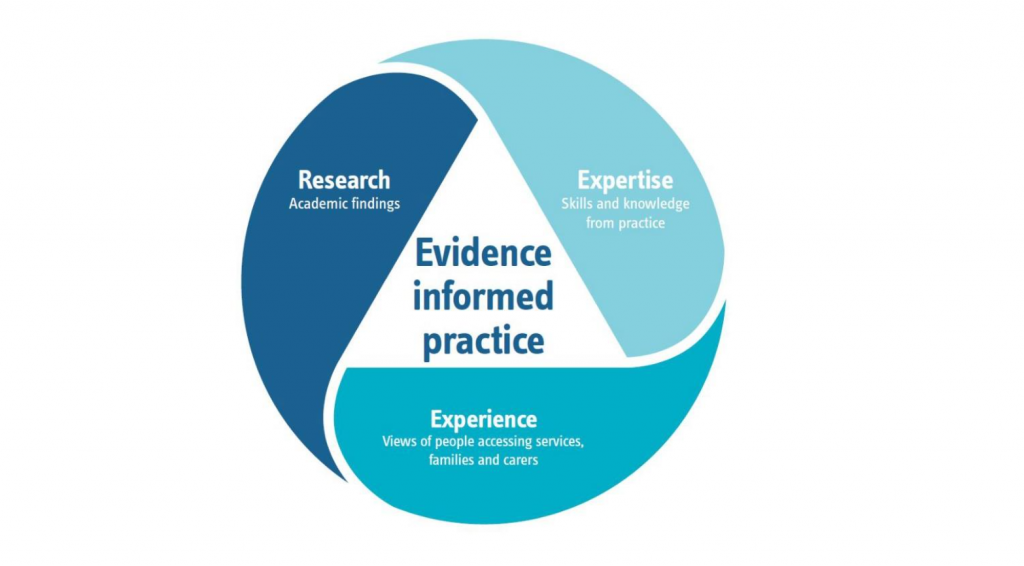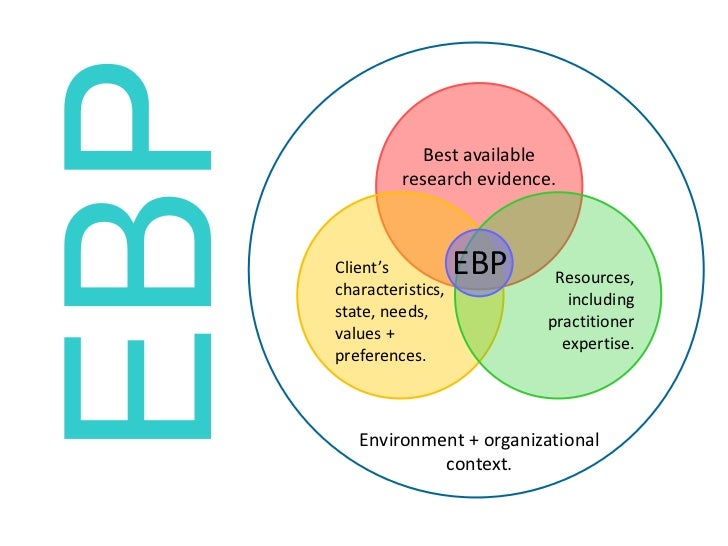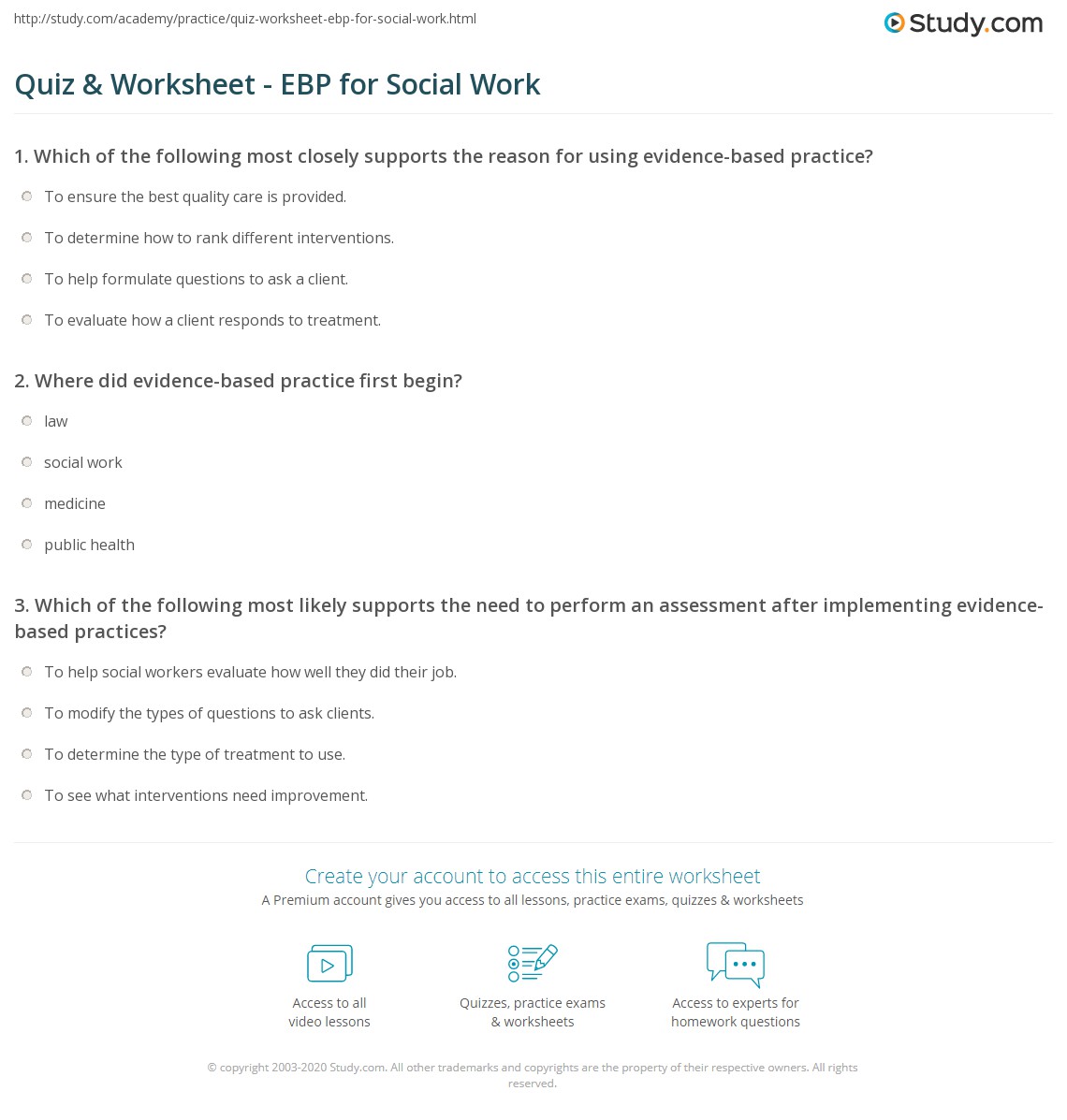Evidence Based Practices In Social Work

In the ever-evolving landscape of social work, the integration of evidence-based practices (EBPs) has emerged as a cornerstone for enhancing the effectiveness and reliability of interventions. Grounded in empirical research, EBPs ensure that social workers employ strategies and techniques proven to yield positive outcomes for clients. This article delves into the concept of evidence-based practices in social work, exploring their importance, implementation, challenges, and future directions.
What Are Evidence-Based Practices in Social Work?

Evidence-based practices in social work refer to interventions and approaches that have been rigorously tested and demonstrated to be effective in addressing specific client needs or issues. These practices are rooted in scientific research, ensuring that social workers use methods that are not only theoretically sound but also empirically validated. EBPs encompass a wide range of interventions, from individual counseling techniques to community-based programs, all aimed at improving client well-being and achieving measurable outcomes.
Expert Insight: "Evidence-based practices bridge the gap between research and real-world application, ensuring that social workers are equipped with tools that have proven efficacy," says Dr. Jane Smith, a leading researcher in social work.
The Importance of Evidence-Based Practices

The adoption of EBPs in social work is critical for several reasons:
- Improved Client Outcomes: EBPs are designed to address specific problems with interventions that have been shown to work, leading to better results for clients.
- Accountability: By using evidence-based methods, social workers can demonstrate the effectiveness of their interventions to stakeholders, including funders and policymakers.
- Professional Credibility: EBPs enhance the credibility of the social work profession by aligning it with scientific standards and best practices.
- Resource Efficiency: Implementing proven interventions reduces the likelihood of wasting time and resources on ineffective strategies.
Key Takeaway: Evidence-based practices are essential for ensuring that social work interventions are both effective and accountable, ultimately benefiting clients and the profession as a whole.
Implementing Evidence-Based Practices in Social Work
The integration of EBPs into social work practice involves several key steps:
- Assessment of Client Needs: Identify the specific issues or challenges faced by the client or community.
- Research and Selection of EBPs: Review the literature to identify interventions that have been proven effective for similar issues.
- Adaptation to Context: Tailor the selected EBP to fit the unique cultural, social, and environmental context of the client or community.
- Implementation: Apply the EBP with fidelity, ensuring that it is delivered as intended by the research.
- Evaluation and Monitoring: Continuously assess the effectiveness of the intervention and make adjustments as needed.
Examples of Evidence-Based Practices in Social Work
| Practice | Target Population | Key Outcomes |
|---|---|---|
| Cognitive Behavioral Therapy (CBT) | Individuals with mental health issues | Reduced symptoms of anxiety and depression |
| Motivational Interviewing (MI) | Clients struggling with behavior change | Increased motivation and commitment to change |
| Trauma-Focused CBT (TF-CBT) | Children and adolescents with trauma histories | Improved emotional regulation and reduced trauma symptoms |

Challenges in Adopting Evidence-Based Practices
Despite their benefits, the implementation of EBPs in social work is not without challenges:
- Access to Research: Social workers may lack access to up-to-date research or struggle to interpret complex studies.
- Resource Constraints: Limited funding, time, and staffing can hinder the adoption of EBPs.
- Cultural Relevance: Some EBPs may not be culturally appropriate or adaptable to diverse client populations.
- Resistance to Change: Professionals may be resistant to adopting new practices, preferring traditional methods.
Pros of EBPs: Enhanced client outcomes, professional credibility, and resource efficiency.
Cons of EBPs: Implementation challenges, resource constraints, and potential lack of cultural fit.
Future Directions in Evidence-Based Social Work

As the field of social work continues to evolve, several trends are shaping the future of EBPs:
- Technological Integration: The use of technology, such as telehealth and mobile apps, is expanding access to EBPs.
- Cultural Adaptation: There is a growing emphasis on adapting EBPs to be more inclusive and culturally responsive.
- Collaborative Research: Partnerships between researchers and practitioners are fostering the development of new EBPs.
- Policy Support: Policymakers are increasingly recognizing the value of EBPs, leading to greater funding and support.
"The future of social work lies in the seamless integration of research, practice, and policy, ensuring that every client receives the most effective care possible," notes Dr. John Doe, a social work educator.
Frequently Asked Questions (FAQ)
What is the difference between evidence-based practice and best practice?
+While both aim to improve outcomes, evidence-based practices are supported by rigorous research, whereas best practices are often based on expert opinion or tradition.
How can social workers stay updated on the latest EBPs?
+Social workers can stay informed by accessing peer-reviewed journals, attending conferences, and participating in professional development programs.
Are evidence-based practices one-size-fits-all?
+No, EBPs should be adapted to fit the unique needs and cultural contexts of clients to ensure their effectiveness.
What role does client feedback play in EBPs?
+Client feedback is crucial for evaluating the effectiveness of EBPs and making necessary adjustments to improve outcomes.
How can organizations support the implementation of EBPs?
+Organizations can provide training, resources, and a supportive environment that encourages the adoption of evidence-based practices.
Conclusion
Evidence-based practices represent a transformative approach to social work, grounding interventions in empirical research and ensuring that clients receive the most effective care possible. While challenges exist in their implementation, the benefits of EBPs—improved client outcomes, professional credibility, and resource efficiency—far outweigh the obstacles. As the field continues to evolve, the integration of technology, cultural adaptation, and collaborative research will further enhance the impact of evidence-based practices. By embracing EBPs, social workers can fulfill their mission of promoting social justice and improving the lives of those they serve.